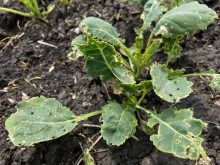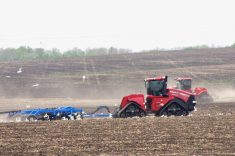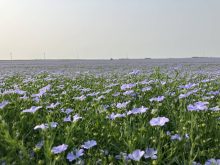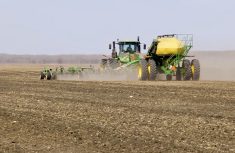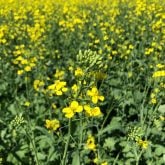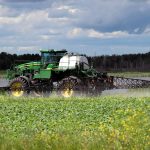Another big rainfall June 2 has southwestern Manitoba farmers singing another refrain of the soggy boggy blues as they wait for their saturated land to dry up.
“There are some farmers in the area who are done seeding for the first time, there are a lot who are reseeding and quite a few people who would likely reseed but since the rain we got on Tuesday, it is way too wet,” said Walter Finley, Souris-area farmer. “The surface and the subsoil moisture levels are right at the top for this entire area. At this point any precipitation drastically delays field activity.”
Read Also

CUSMA access key among other trade noise: Seeds Canada panel
Seeds Canada conference panelists say Canada needs to stay focused and wait as U.S. trade and tariff chaos develops, and a Canada-U.S.-Mexico Agreement review looms
A heavy rainfall dumped on the southwest corner of the province June 2 evening, with the Waskada region being the hardest hit, recording 4.8 inches overnight.
“It has taken three days after a half-inch of rain to be able to drive on the field again,” said Finley. “Where normally after a half-inch of rain, if we weren’t overly saturated to start with, we would be out there a day later.”
Melita-area farmer, Curtis Gervin, considers himself lucky to have only received an inch during the latest rainfall but is also struggling to access his fields.
“This past May was one of the craziest I’ve seen in terms of sporadic weather. Hot days and then frost with long periods of cool temperatures. It has certainly been a struggle to get anything in the ground,” said Gervin. “In some areas the water table is so high we can’t even get the equipment out.”
The condition of country roads is also presenting an issue as many RMs throughout the province continue to struggle repairing roadways from previous flood waters and frost damage.
“The roads out here are in horrendous condition because of the frost boils and the water. It is tough to find a road you can go down with a load of fertilizer without making a big mess,” said Finley. “Some roads are closed and the graders have been out to try and maintain others so that they are at least passable.”
Finley says that damaged and closed roads are definitely slowing things down, but are also raising safety concerns.
“Everyone tries to avoid travelling on the highways (with farm equipment) but at this point, there is very little option. Therefore, you are travelling on well-travelled roads where there is always a higher possibility of an accident,” he said.
As Mother Nature continues to throw curve balls, many say the current situation isn’t great but it is the best it has been in a number of years.
“Last year at this time I had 10 per cent of my crop sown and I only ended up getting 25 to 30 per cent in total. This is the best situation we have been in this area for a number of years,” said Finley.
Producers are holding out hope, many saying their fields are in need of at least two months of dry conditions to dry out.
“We need to come to terms that we are living in a country of extremes and there isn’t much we can do about it,” said Gervin. “For those of us who have been fortunate to get something planted, we are just thankful and holding on for what is to come as we head into the wettest month of the year.”








